Swiss jolted by bold EU reaction to Ukraine
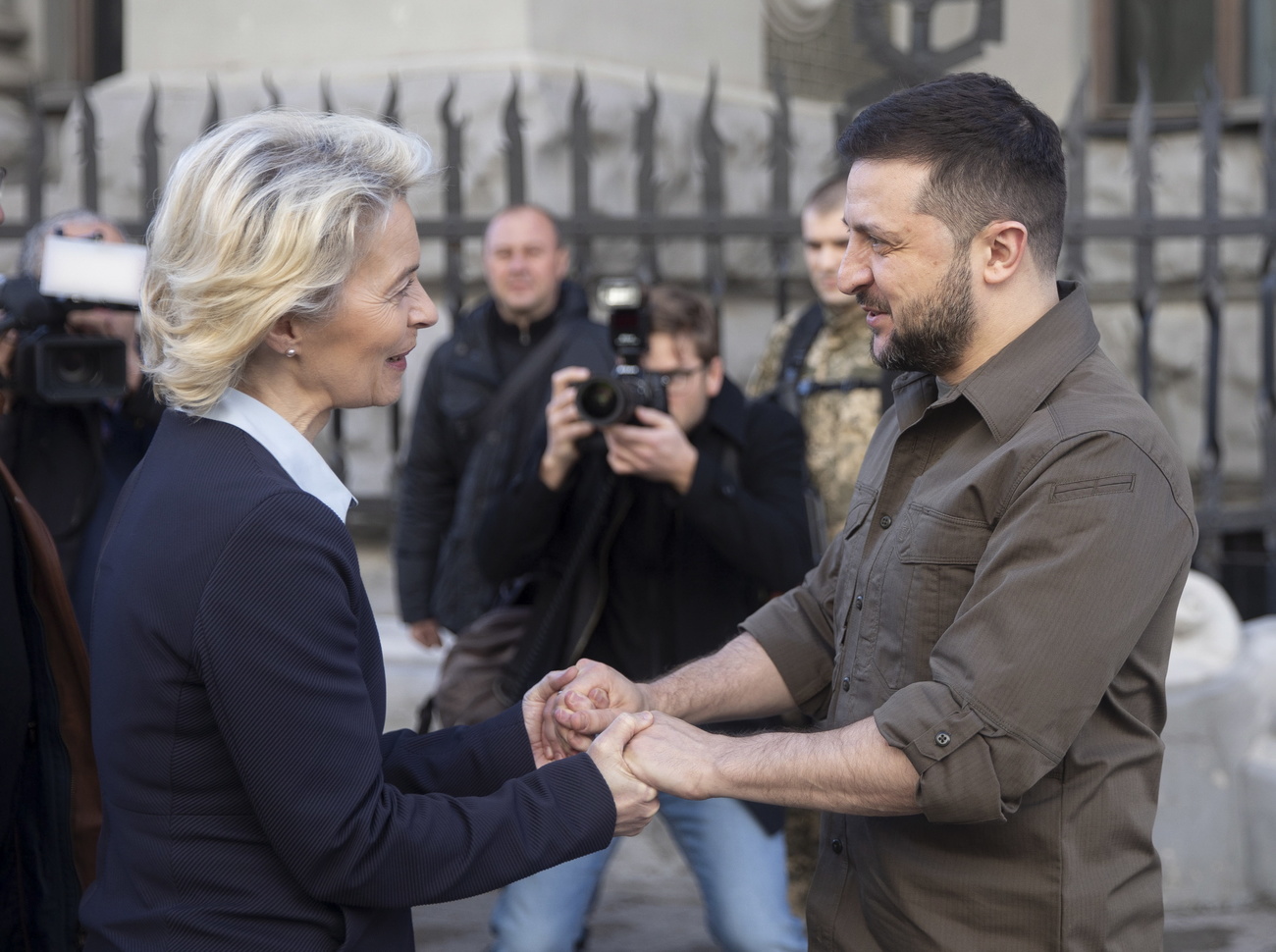
The Ukraine war has brought the European continent together as never before. Yet Switzerland still needs to find its place in this increasingly assertive Europe. That could prove a long process. An analysis.
While people in Switzerland still prefer to think of the European Union as an economic bloc, it has by now firmly established itself as a community of values. Switzerland is waking up to the fact that the war in Ukraine has made the EU a major geopolitical player. The sanctions against Russia exceed the economic sum of individual measures. The Kremlin calls it “economic war”.
The pandemic boosted European integration, economically and logistically. Now there is a strong urge to work together more closely in the areas of defence, energy and foreign policy. Stronger within, the EU now appears to the outside to be astonishingly agile and resolute and thus, for the first time, really powerful. That makes it attractive: three countries – Ukraine, Georgia and Moldova – have asked to join the Union. The EU promises not just prosperity, but security as well.
Goodwill, but diverging expectations
What will that mean for the relationship between Switzerland and the European Union?
One thing is for sure: Switzerland is dealing with a reinvigorated counterpart. It is also dealing with a new geopolitical environment, and despite its traditional neutrality the Alpine country is entrenched in the West – politically, economically and in terms of values. Militarily, too, the country is getting closer to NATO and the EU through security partnerships.
On the other hand, relations with the EU have been on hold since Switzerland unilaterally broke off negotiations in May 2021 on the framework agreement for bilateral relations. This did not go down well in Brussels.
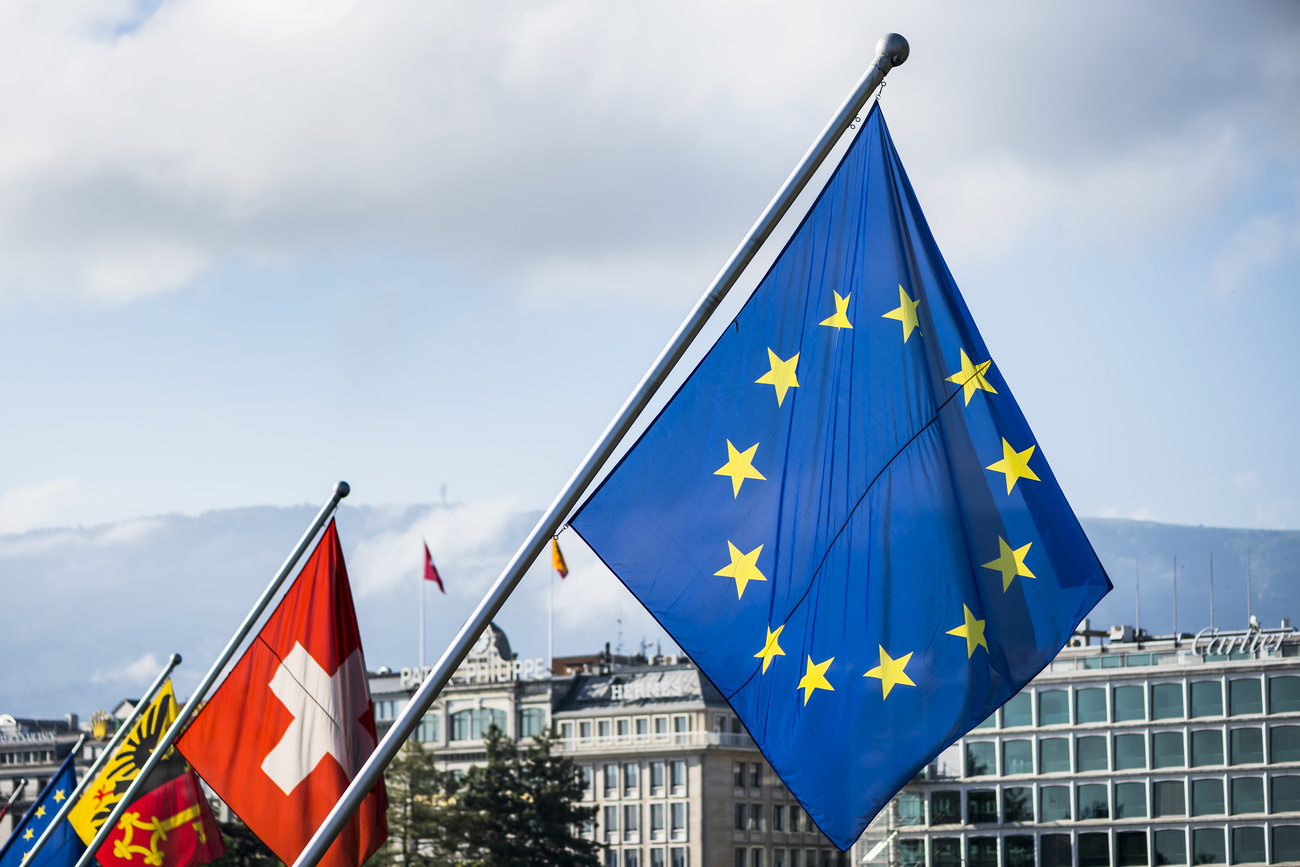
More
Swiss reject framework agreement deal with EU
Almost at the same time as Russia’s invasion of Ukraine in February, Switzerland initiated new talks with the EU. When Bern adopted all the EU’s sanctions, it was appreciated in Brussels – but it was also expected as a matter of course. Switzerland’s inclusion in the flurry of European sanctions was nonetheless worth a 15-minute telephone summit between EU Commission President Ursula von der Leyen and Ignazio Cassis, who holds the rotating Swiss presidency this year. Before those 15 minutes of Von der Leyen’s time, Switzerland did not even have access to EU negotiator Maros Sefcovic.
Whether this will bring any advantage in future negotiations is questionable. Roland Fischer, a Liberal Green parliamentarian, expects the Ukraine war to slow any rapprochement between Bern and Brussels. “The EU has other priorities right now,” he says. Still, he sees an opportunity, because a stronger mutual understanding is in the interest of both sides.
A ‘new beginning’?
Christian Wasserfallen of the centre-right Radical-Liberal Party sees it that way too. “In the face of Russian aggression, the West has a vital interest in closing ranks,” he says.
Europe is confronting challenges on multiple fronts, so it is time that the EU gave up the “tactical manoeuvring” with Switzerland. “It is the right moment for a new beginning in our relationship,” Wasserfallen argues, stressing that Switzerland also needs to play a constructive role. He points to the upcoming referendum on Swiss funding for the European border agency Frontex. “A no vote would be a disastrous signal at this point,” he says.
Underpinning all this is a basic dilemma: the EU no doubt desires good relations with Switzerland, yet it will not be inclined to offer Switzerland too favourable a package – and thus stir up jealousies within the Union itself. The tough way the Brexit negotiations were carried out, and the confrontations with Poland and Hungary, are vivid examples for Bern of the EU Commission’s new-found self-assurance.
Bridging the divide between EU versus Swiss expectations won’t be easy. Switzerland would prefer to negotiate a new bilateral package and determine access to the internal market sector by sector. The EU, on the other, insists that there should be a dynamic harmonisation of laws and a legal mechanism to resolve disputes. In times of war and destruction these formal and technical issues may seem oddly out of place on both sides, but when we look at the EU, we notice that the lumbering bureaucratic monster of years gone by has become an agile player with a knack for quick decision-making.
The European Union has shown itself much better able to act decisively and better prepared in the face of the Ukraine war than Switzerland. The EU looks better organised and better led too. That means it has not just more power, but greater sovereignty. Ironically, questions of sovereignty have been a major sticking point in the bilateral relationship between Bern and Brussels.
Switzerland’s dithering is – at least on the domestic front – causing more and more irritation. The Swiss model is proving itself to be not the best way in a crisis. The very qualities that many Swiss used to fault Brussels for are now on full display in Bern: obsession with details and ponderous federalism, a top-heavy bureaucracy that hobbles itself, and a structure that may work as an economic union but can’t make political decisions for itself.
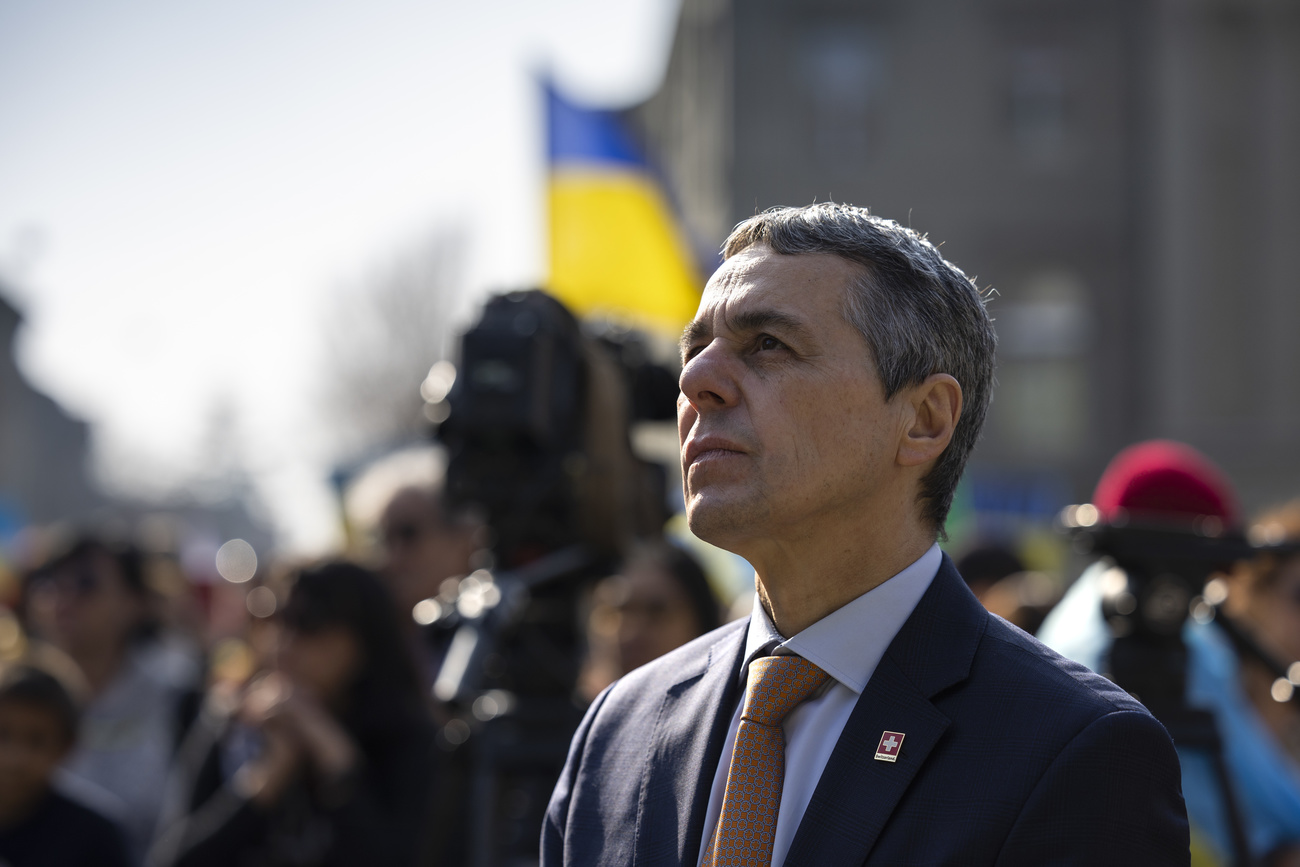
The pro-European forces in Switzerland are feeling in a stronger position. For months now, parliamentarians and organisations in civil society have been pressuring the government to restart negotiations with the EU. With the outbreak of war, there has been more of this pressure in parliament.
EEA as a further option
Only a small minority in parliament is still in favour of joining the EU. But the idea of joining the European Economic Area (EEA) is back on the table, although the free-trade zone was forgotten after a rejected accession initiative in the 1990s.
Roland Fischer has put forward a proposalExternal link for the government to re-examine the feasibility of EEA membership. While the EEA was once seen as a transitional solution to full membership, the economic area is now firmly established. “So this option should be discussed too,” Fischer says, noting that the timing is right and approval ratings are high.
The EEA could also experience a revival in the Western Balkans as an alternative to the faltering process of EU enlargement and to counter the Russian sphere of influence, which is regarded as destabilising.
Other ideas are being discussed in parliament, such as single-issue agreements with the EU, like participation in the Schengen area.
The president of The Centre party, Gerhard Pfister, has launched a discussion on how the Swiss air force could fit into a European defence strategy – this in view of the planned purchase of American F-35 fighter planes.
NATO as a military alliance was famously called “brain-dead” not so long ago. Now the transatlantic body has been hastily resuscitated. While American spy agencies were warning of an imminent attack by Russia against Ukraine, the Europeans were caught off guard.
Many states have now announced that they intend to raise their military expenditures to 2% of their GDP. In non-aligned Finland and neutral Sweden, there is talk of joining NATO, something that was not an issue until the Russian invasion of Ukraine. The fact that Sweden, like many other European states, has now shipped arms to Ukraine shows just how radically security policy on the continent has shifted – and how taboos can quickly be forgotten.
Joining NATO would not be an option for Switzerland, says Wasserfallen of the Radical-Liberals. “But there are other levels where we can cooperate, such as within the OSCE.” He could also envisage Switzerland participating in some future peace-keeping mission in Ukraine under a United Nations mandate, like it has been doing in Kosovo. The president of the Radical-Liberal Party, Thierry Burkart, also favours the idea of Switzerland getting closer to NATO.
Is Switzerland on the way to joining a European security alliance? Read more on this here.
Not all approve of the idea of a rapprochement, however. The right-wing Swiss People’s Party, some of whose members play down the Russian invasion and criticise the sanctions against Russia, has launched an initiative to strengthen Swiss neutrality in the country’s constitution. The aim is to maintain Switzerland’s go-it-alone approach.
The post-war order in Europe seems to be coming down to an East-West rivalry, a new edition of the Cold War. European integration has reached a completely new level, dealing with more than just economic issues. The debate on how Switzerland should position itself in relation to this stronger, more united and dynamic EU has really only started.
Translated from German by Terence MacNamee

In compliance with the JTI standards
More: SWI swissinfo.ch certified by the Journalism Trust Initiative










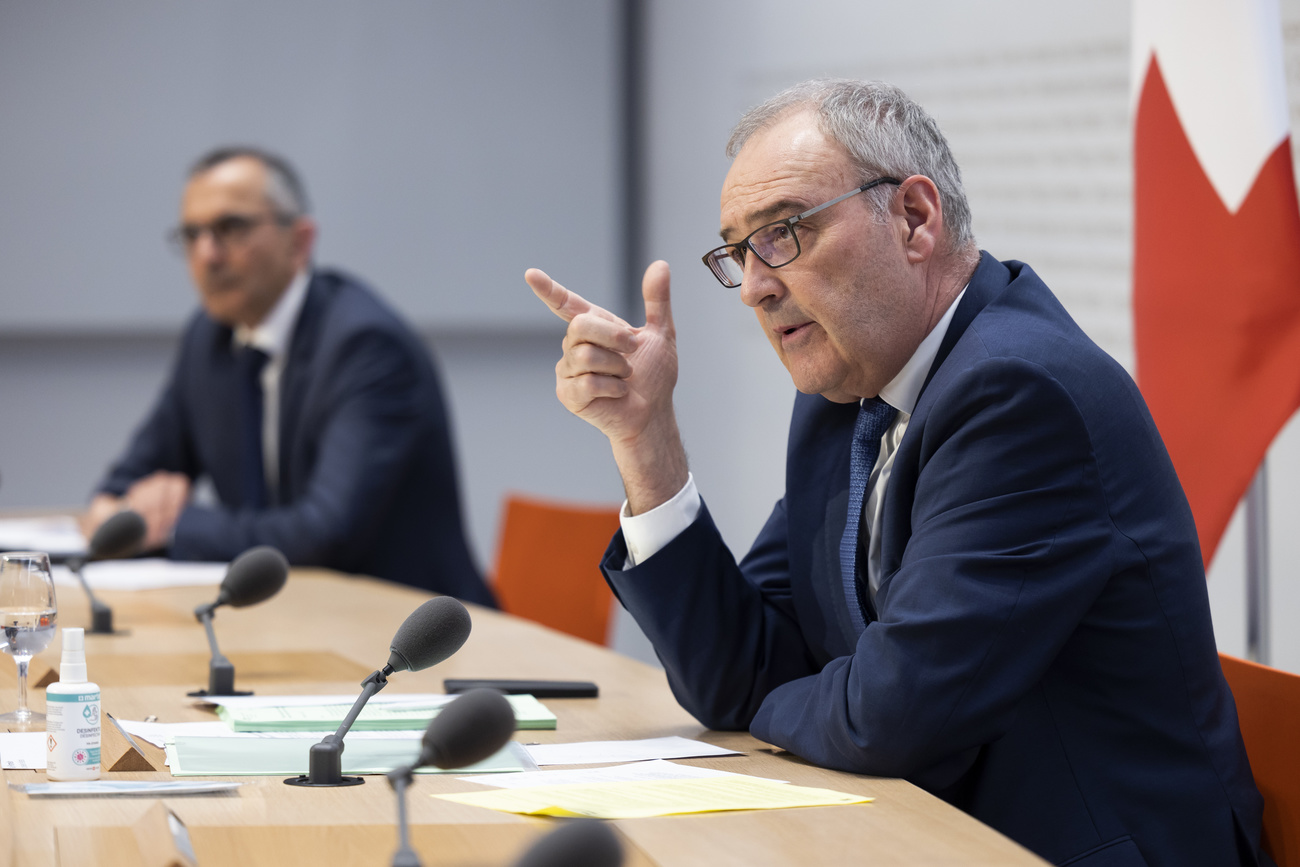
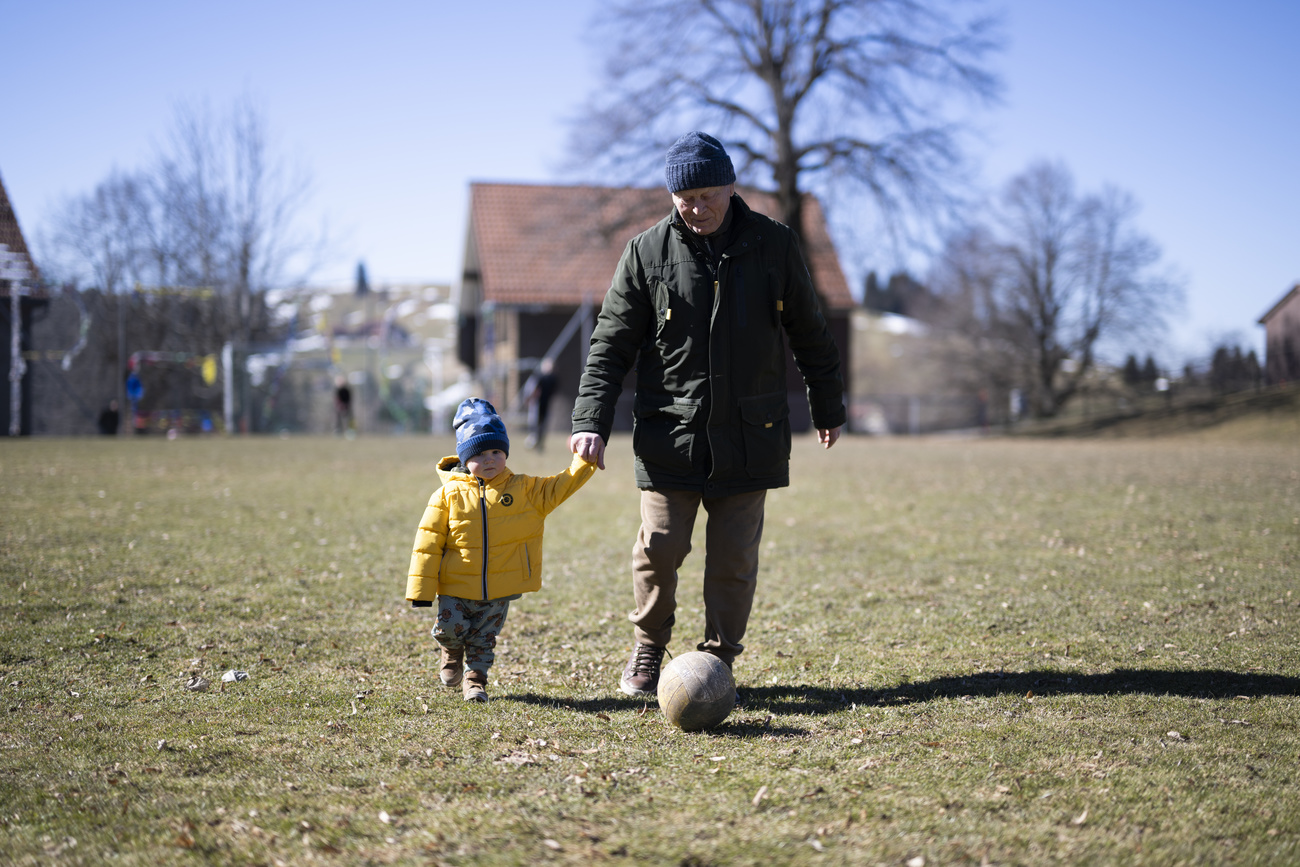

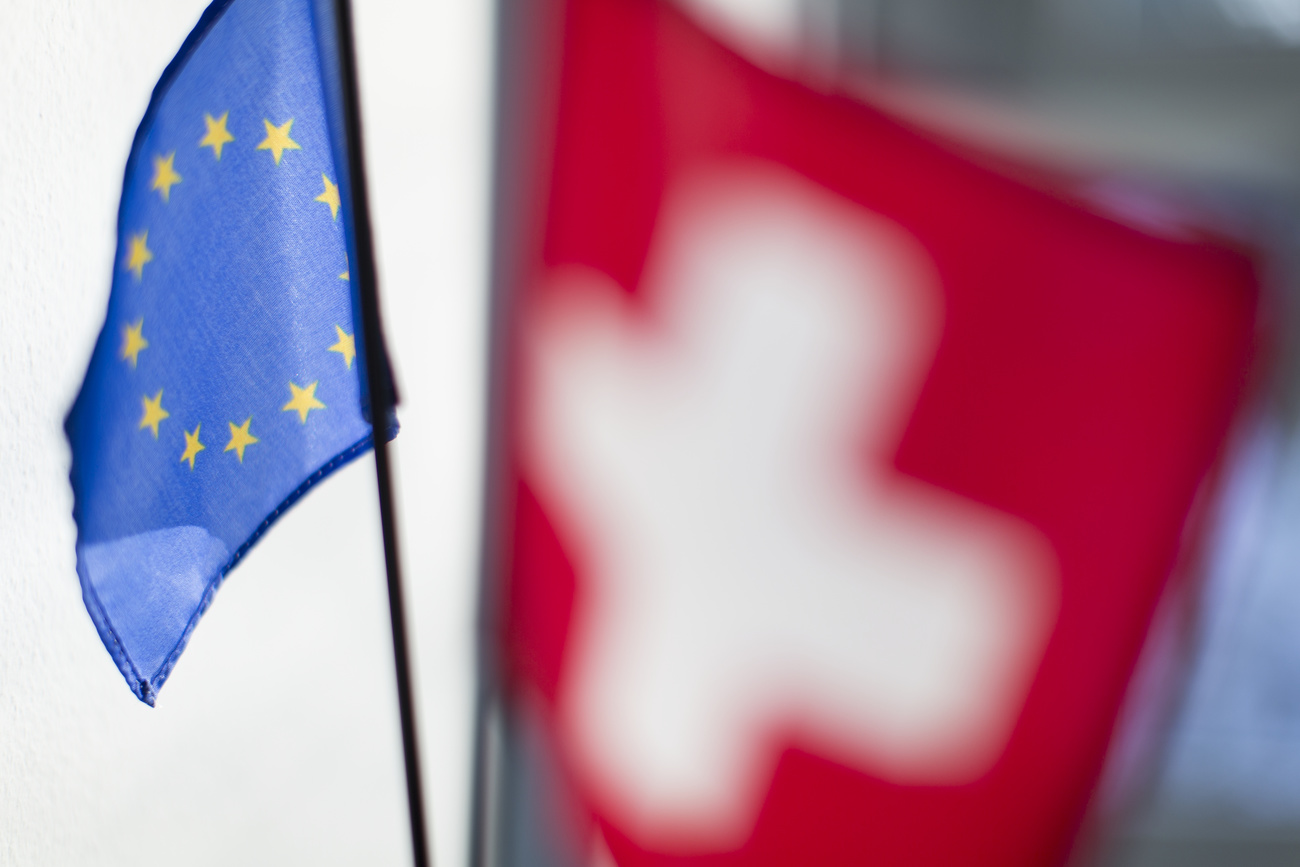
You can find an overview of ongoing debates with our journalists here . Please join us!
If you want to start a conversation about a topic raised in this article or want to report factual errors, email us at english@swissinfo.ch.